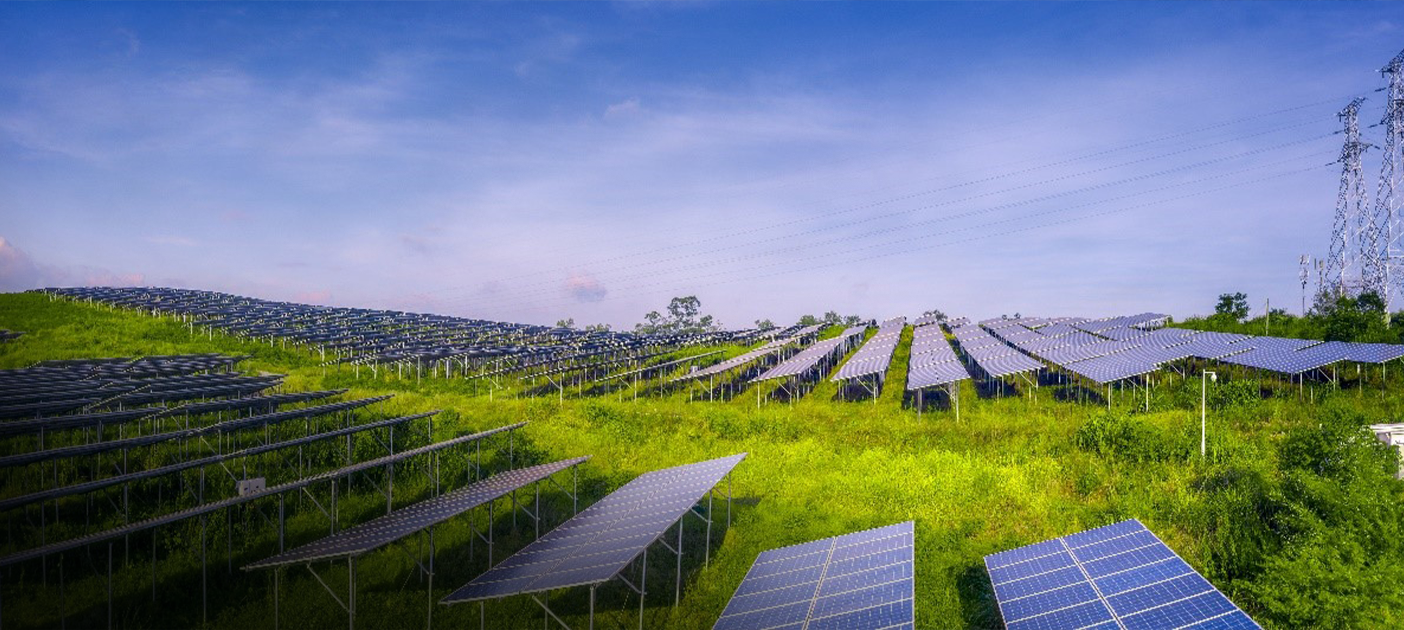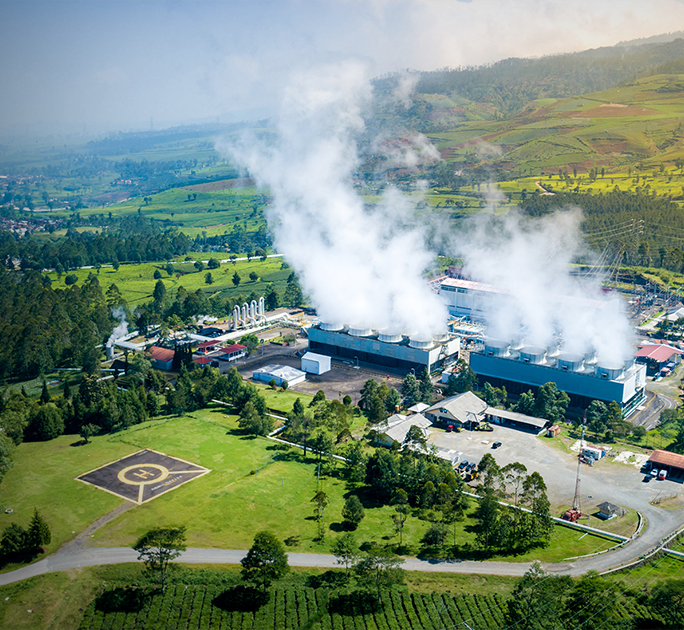Financing Asia’s journey to net zero
Sustainable project finance and bonds help Asian companies to pursue a path of greener growth

Our understanding of Asia as an economic powerhouse is now so entrenched that it has become something of a cliché. The world’s fastest-growing economic region for some 20 years, Asia not only outperforms the US and Europe, with their ageing populations and debt-ridden economies, but has also overturned once-established notions of property ownership.
Today, the manufacturing and industrial hubs that have been so central to driving growth across the region, which is home to some of the world’s largest carbon emitters (accounting for more than half of all carbon dioxide emissions in 2020), are now in danger of becoming a burden, as the world seeks a roadmap to net zero. As a result, the region’s major economies now need to find new ways to support a non-disruptive transition to more sustainable economic growth.
According to a report by the global insurer Swiss Re Group1, the price of not doing so promises to be environmentally and financially catastrophic. If no action is taken to reduce carbon emissions, Asia’s regional economy would be 26.5 per cent smaller, and ASEAN countries could lose 37.4 per cent of today’s gross domestic product (GDP) by 2048.
There are, however, signs of a sea change. The announcement by the Energy, Sustainability & Climate (ESC) Business Group 20 (B20) Task Force of the Energy Transition Mechanism (ETM) has the potential to be transformative.
The ETM relates to the use of blended finance to accelerate the closure of coal-fired power plants. “The twin climate challenges in south-east Asia are its relatively young coal-fired power plant fleet and deploying stable green power at scale,” explains Wee Seng Lim, Group Head Energy, Renewables and Infrastructure with Asia’s leading bank, DBS. “We are advising Indonesia’s sovereign wealth fund, INA, on the ETM scheme in Indonesia to tackle the first, crowding in private and public capital (including multilateral agencies) to facilitate the early closure of selected coal-fired power plants. This model can then be replicated in other coal power-dependent countries, such as Vietnam.”
X-HEAD: Technological challenges
While welcoming these opportunities, Mr Lim is keen to strike a note of caution when looking ahead to 2050.
“Most, if not all, enlightened corporates and governments have grasped the ‘why’ of sustainability: that is no longer the issue. Now the challenge is the ‘how’ putting in place the enablers,” he says. “While it is widely acknowledged that current technologies can bring us to 2030 targets, the pathway to net zero from then to 2050 is dependent on technologies that are either still nascent and are associated with prohibitive costs, such as carbon capture or green hydrogen, or are yet to be established.”
DBS' confidence is buoyed, however, by the strong institutional interest that has been shown in an equity search mandate it is working on for a stake in a Vietnamese offshore wind project. “Offshore wind resources are promising in Vietnam and, if successful, this could materially address the second challenge of green power in south-east Asia – that of scale,” Mr Lim insists.
Despite these challenges, there is also growing confidence among Asia’s investors in the opportunities afforded by assisting governments to fund the transition to net zero. Last September, for example, Singapore’s National Environment Agency (NEA) raised S$1.65bn (£1.03bn) in green bonds, which was the largest inaugural green bond issue ever made by a Singaporean statutory body at its launch.
“The green/climate agenda is now up front and centre. Issuers in Asia are realising that commitments to move towards net zero by a certain timeframe have become an important – in some cases, essential – component of their business strategy,” says Clifford Lee, Global Head of Fixed Income at DBS. “What is also interesting is that much of this increase in awareness of sustainability issues has initially been driven by the private sector itself.”
Mr Lee is also keen to stress that this transformation is happening in spite of the lack of regulations in many countries across this region, encouraging companies to incorporate sustainability issues in their strategy setting, risk management and disclosure.
X-HEAD: Need for synergy
Speaking to the Economic Society of Singapore in August 2022, the Managing Director of the Monetary Authority of Singapore, Ravi Menon, spoke of the need for immediate action to transform zero carbon commitments from aspirations into credible and achievable targets. “We need to synergise public and private capital through blended finance for green and transition projects,” he said, quoting a recent McKinsey report that identified a gap in annual transition finance of approximately US$1tn2.
From renewable energy producers and property developers to the agri-food industry, leasing and shipping and infrastructure consultancy, Singapore’s private sector is showing a greater interest in tapping the green bond market, with many companies investing in more robust and transparent in-house environmental, social and corporate governance (ESG) frameworks and targets.
DBS has advised and arranged finance for a growing number of sustainable initiatives, from large-scale geothermal and offshore wind projects in Indonesia and Taiwan respectively, to the largest floating solar projects in Taiwan and Singapore and the largest stand-alone battery storage project in Australia. Such is the momentum in the Asia market that the bank has achieved its 2024 target of S$50bn in sustainable financing two years early.
Chief among the challenges for corporations is the cost of increasing the percentage of sustainable energy, creating the capacity for its storage and its integration into existing power grids at scale.
“Looking ahead, green bonds would remain as one of the important instruments for issuers to meet the financing needs for green projects and assets,” Mr Lee concludes. “We also predict increased pressure from investors, regulators and consumers for companies to demonstrate their transition efforts as corporate awareness of sustainability issues continues.”
This content has been produced by DBS Bank in collaboration with the Commercial Department of The Financial Times.



